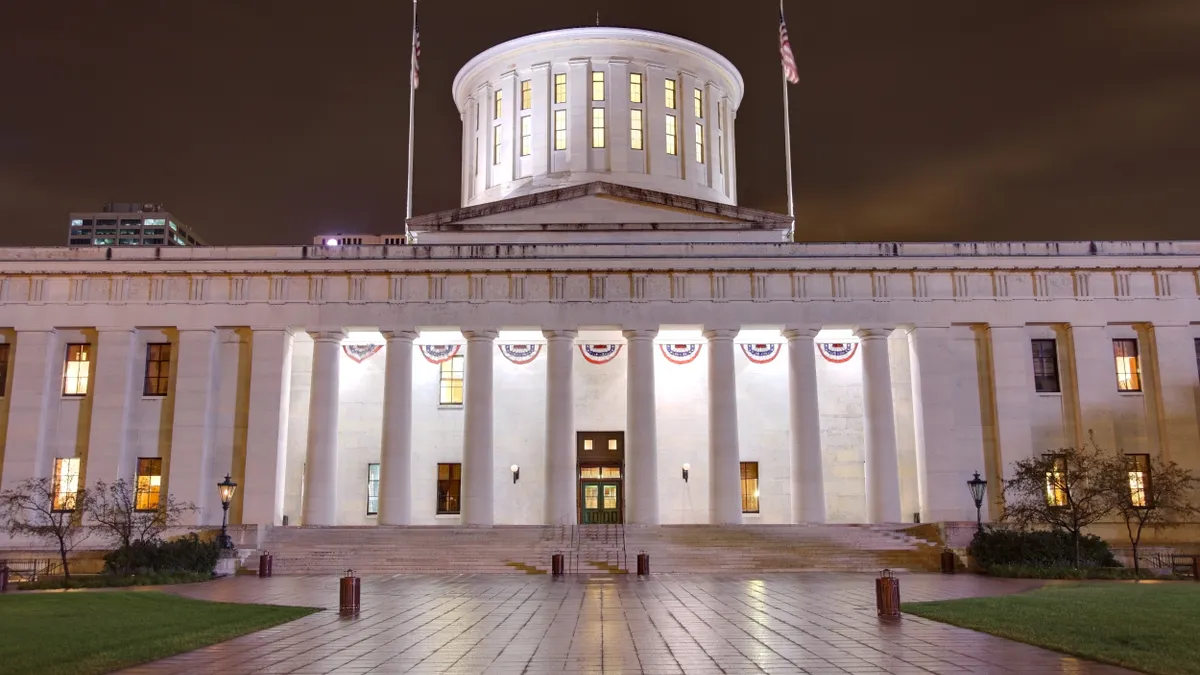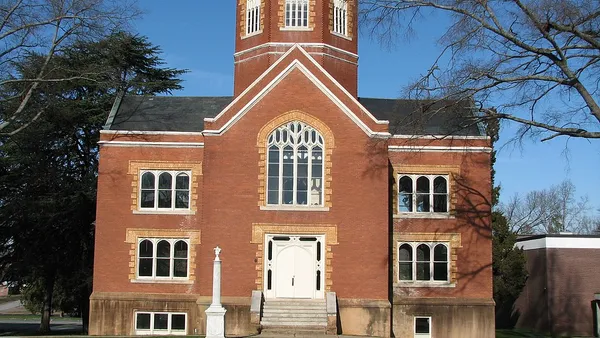Dive Brief:
- Ohio Gov. Mike DeWine signed higher ed legislation last week making permanent a program awarding $2,000 grants to students who return to class within five years of stopping out of postsecondary education.
- The initiative, called the Second Chance Grant Program, launched as a pilot in October after lawmakers set aside as much as $3 million for it. Last week's legislation expands the program, making more students eligible.
- Students who attended public, private nonprofit and for-profit institutions in the state — including Ohio career and technical education centers — can now qualify for the grants. The pilot program only covered students who stopped out of Ohio's public community colleges or universities. The newly expanded program also makes eligible students who have not been enrolled for a minimum of two semesters, compared to three under the pilot.
Dive Insight:
Colleges across the country seek to reenroll stopped-out students, often to try to meet expected workforce demands and state goals for the number of residents with postsecondary credentials.
Before the coronavirus pandemic, college leaders also hoped bringing back stopped-out students could help compensate for expected traditional-age student enrollment declines driven by low birth rates in the wake of the Great Recession. Reenrollment took on even more importance after the pandemic upended college-going patterns, hammering community colleges in particular.
Addressing monetary challenges is a key strategy for reaching stopped-out students. Finances were the top reason adults ages 20 to 34 stopped out of college, according to a study released late last year by the University Professional and Continuing Education Association and online education company StraighterLine. Of former students in that age range who'd earned some college credit, 42% indicated that finances caused them to abandon their studies.
About 1.5 million Ohio residents completed some college coursework without earning a credential or degree, the state's Department of Higher Education said when it launched the Second Chance Grant pilot last fall.
At the time, the department recommended colleges promote the program to students who've shown they're likely to earn a degree or credential if provided with more financial support. It suggested prioritizing grants for students who are within a year of completion and urged institutions to combine the $2,000 grants with other forms of financial aid, such as debt forgiveness.
Under the pilot, grants were awarded starting in the first term of 2022 on a first-come, first-serve basis. Students could use the grants to reenroll and finish programs they'd started or to pursue higher-level credentials than they'd earned in the past. Any award dollars they didn't use rolled over to the next semester.
Students could use the pilot grants at institutions they'd previously attended or a different institution.
As of last week, a total of 281 students had received $562,000 in grants under the pilot, according to Jeff Robinson, communications director at the Ohio Department of Higher Education.
Just over two-thirds of applicants in the pilot had previously attended a public community college in the state, meaning the remaining third attended a public university. Most students applying wanted to use the grants to seek a bachelor's or associate degree, according to Robinson.
Lawmakers did not allocate any additional money for the grant program. That means about $2.5 million remains. Additional appropriations beyond the initial $3 million would need to come from future budget bills, Robinson said in an email.
The new legislation makes a few minor changes from the pilot program, removing a cap on the number of applicants that can be accepted and adding some data reporting requirements, Robinson said.
To qualify, students must have been in good standing when they left college.
The bill making the pilot permanent was part of wide-ranging legislation that wound its way through the state Legislature for more than a year before DeWine, a Republican, signed it. Other provisions proved controversial, such as rules requiring colleges to adopt free speech principles and create a formal complaint process for students to flag suspected violations, Axios Columbus reported.














